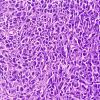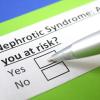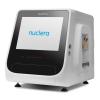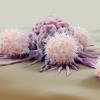To examine the infectious periods in vaccinated individuals infected with the SARS-CoV-2 Omicron and Delta variants, US researchers collected daily anterior nasal swabs for at least 10 days from a group of college students and staff for reverse transcription-polymerase chain reaction test and culture and with antigen rapid diagnostic testing (RDT) on a subset of individuals.

They found that in the majority of young, healthy and vaccinated adults, the infectious period for SARS-CoV-2 is limited, with only 17% remaining positive beyond five days.
The researchers compared infection with Omicron versus Delta, vaccination status and the difference from test date and symptom onset date on detectable virus and culture positivity.
They found there was no difference in time to culture conversion by variant or vaccination status. Among participants in the subset who used an antigen RDT in days five through seven following SARS-CoV-2 diagnosis, RDT had perfect negative predictive value and sensitivity when compared to culture.
“We believe that RDT may provide reassurance of lack of infectiousness, though masking for a full 10 days is necessary to prevent transmission from the 17% of individuals who remain culture positive after isolation,” said Tara Bouton, corresponding author.
Image credit | iStock




